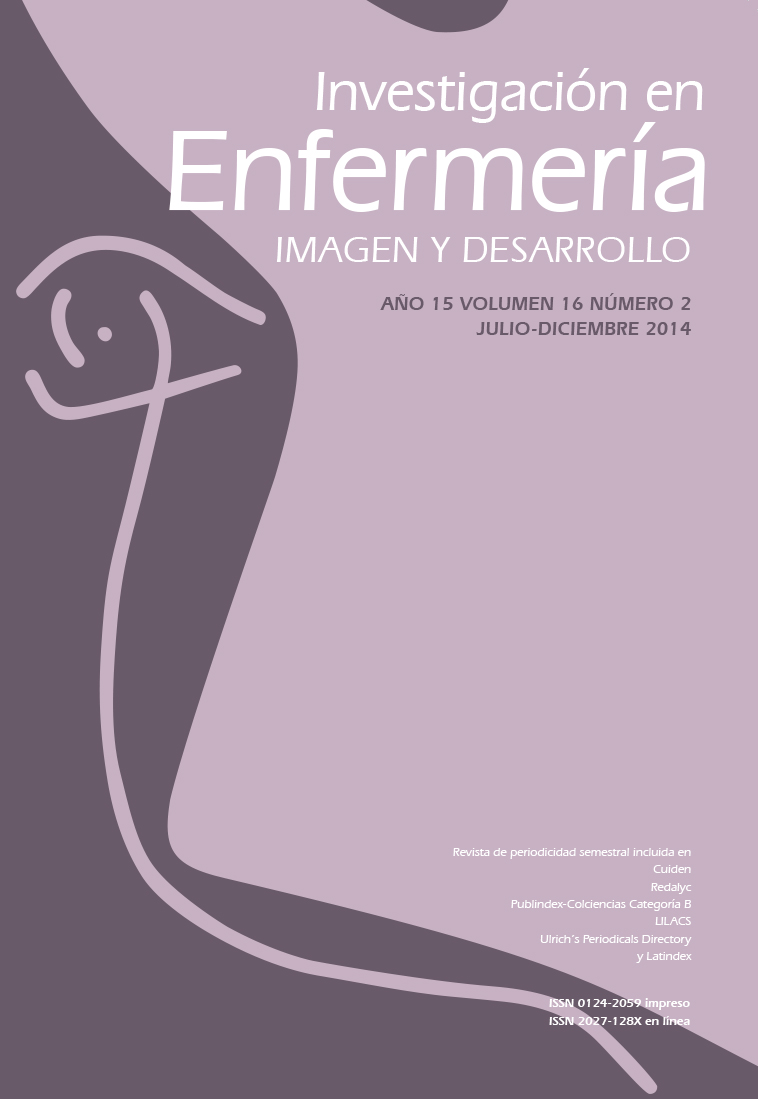Abstract
Objective: To establish the association of the burden of family caregivers with care time and the degree of functionality of the elderly peasant. Materials and methods: quantitative study with cross-sectional correlational range, with a sample of 50 family caregivers. It was applied: one sociodemographic survey; Zarit scale, measuring caregiver burden, and the Barthel Index, which measures the degree of functional dependence. Results: Family caregivers are usually women (76%); over 60 (50%), married (40%) and single (30%); with low socioeconomic status (94%) and education (66%).No significant association between caregiver burden and the degree of functionality (p = 0.249) was found, nor between caregiver burden and time as caregiver (p = 0.476). Conclusions: A high proportion of rural women are family caregivers. The study reports that caring time and degree of functionality are not predictors of elder care burden on the peasant family caregiver. More research and inquire is needed to determine if there are cultural aspects that influence the experience and meaning construction of care. The need for educational programs for rural carers through processes of self-recognition and self-determination in accordance with their culture and capabilities is suggested.The journal Investigación en Enfermería: Imagen y Desarrollo is registered under a Creative Commons Attribution 4.0 International Public License. Thus, this work may be reproduced, distributed, and publicly shared in digital format, as long as the names of the authors and Pontificia Universidad Javeriana are acknowledged. Others are allowed to quote, adapt, transform, auto-archive, republish, and create based on this material, for any purpose (even commercial ones), provided the authorship is duly acknowledged, a link to the original work is provided, and it is specified if changes have been made. Pontificia Universidad Javeriana does not hold the rights of published works and the authors are solely responsible for the contents of their works; they keep the moral, intellectual, privacy, and publicity rights.
Approving the intervention of the work (review, copy-editing, translation, layout) and the following outreach, are granted through an use license and not through an assignment of rights. This means the journal and Pontificia Universidad Javeriana cannot be held responsible for any ethical malpractice by the authors. As a consequence of the protection granted by the use license, the journal is not required to publish recantations or modify information already published, unless the errata stems from the editorial management process. Publishing contents in this journal does not generate royalties for contributors.


